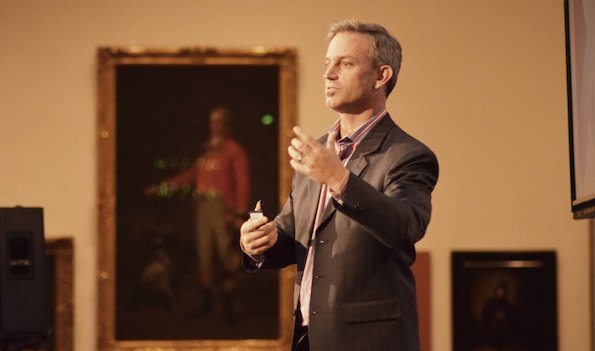Business
Brian Vellmure Defines the Two Things Your Customers Really Want
January 14, 2016

Brian Vellmure, a business technology expert and the founder of consulting firm Innovantage, has a radically simple view of a merchant’s mission: “Regardless of your industry and regardless of what you sell, your consumers essentially want two things: Help me accomplish what I’m trying to do, and/or help me to feel good,” said Vellmure. “That’s it.”
Vellmure, speaking at Marigold Engage by Sailthru’s most recent Lift conference, then went on to show how technology is raising customers’ expectations, and how cutting-edge merchants are using technology both to help their customers and to help them feel good. Check out the full video of Vellmure’s presentation below, and read on for some takeaways:
In order to have any hope of doing either of these things, said Vellmure, marketers must know their customers. They also have to recognize that technology has greatly shifted customers’ expectations, and not just in fields traditionally thought of as tech-enabled. He reminded the audience that:
– 3D printing allows products to be perfectly tailored to the individual.
– Immediacy is imminent. Amazon Prime has moved into free two-hour delivery; Uber Rush is promising free one-hour delivery.
– A startup called Magic coordinates instant delivery and product options so that customers get what they need, as close to the time they need it, at the lowest price possible.
“Our customers aren’t reasonable, and to a certain extent, that’s our fault,” said Vellmure. “But the reality is, we’ve got to respond to them in that reality.”
An Amazing Experience
How can companies respond to unreasonable customers? They’re not likely going to differentiate on product, says Vellmure, as products become commoditized. Instead, it’s all about the experience that should come with the product.
“Everything has to be wrapped in an amazing experience,” said Vellmure. “That’s very, very important, and not just because it makes them feel good, and it makes us feel good, and it’s the thing that we’re supposed to be doing, but it actually converts into hard-core business metrics.” Companies that excel in customer experience, Vellmure said out-perform the larger market, and they do significantly better than those that lag in customer experience.
How will technology enable superior customer experiences? For one thing, it’ll enable machines to better understand the context within which we operate. Vellmure is already seeing hints of this in many disparate fields:
– Artificial intelligence is learning to recognize our emotions based on facial expressions. Right now, Vellmure noted, some companies don’t have that sort of contact with their customers, but as we’re increasingly able to see customers in a retail space – virtual or otherwise – being able to read emotions digitally will give brands important clues as to how customers react to content, products, or a physical experience.
– Self-driving cars will be widely available within four years, predicted Vellmure.
– A new initiative called Facebook M uses humans to help artificial intelligence gobble up more interactions and learn from them more quickly. “For commerce companies, what this means is that Facebook may become one of your largest distributors,” said Vellmure.
Despite the whiz-bang quality of some of these advances, Vellmure reminded those at Lift that people want the same things that they always have. “It’s just taking place in a narrowing window of time and we’ve got … eight seconds to capture their attention and offer a compelling value proposition,” he said.
The marketer’s job, then, hasn’t changed: To leverage technology, to understand the customer, and use that understanding to produce an offering of relevant and extreme value.
RELATED POSTS
The 3 Keys to Superior Customer Experiences According to Leaders at Bonobos, Jet, and Zola
The Future of the Internet of Things & the Connected Consumer
The State of Brand Loyalty in the U.S. in 2023
Related



